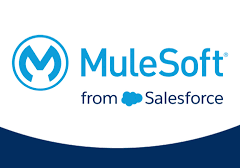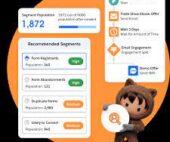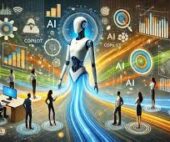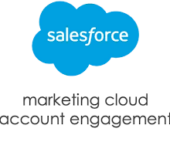The Age of AI Agents Is Here: Is Your Brand Ready?
From Chatbots to Action-Oriented AI Systems: A Shift in Brand Strategy
The first wave of generative AI largely revolved around chatbots—tools like ChatGPT, Gemini, and smaller alternatives—designed to provide information, coding support, and even virtual companionship through natural, conversational exchanges. But the next chapter of AI evolution is unfolding: agentic AI systems that don’t just respond to queries—they act, automate, and make decisions with minimal human oversight.
What Are AI Agents?
Unlike traditional AI chatbots, which serve up answers in text, AI agents take automation to the next level. These systems can navigate across applications, perform digital tasks, and even make autonomous decisions. Anthropic’s recent launch of a “computer use” feature for its Claude 3.5 model is a prime example. This capability allows AI to view screens, type, move cursors, and execute commands. While filling out a form might seem like a modest achievement, the ability to scale such tasks across enterprise workflows could revolutionize productivity.
Other industry leaders are advancing similar systems. Microsoft has introduced new automations for its Dynamics 365 suite, enabling cross-departmental task execution without human input. Salesforce is gearing up to release Agentforce, its own AI-powered task execution suite, while startups like Asana and Cognition AI are pioneering “AI co-workers” to redefine workplace efficiency.
A historical parallel can be drawn with Rabbit R1, showcased at CES 2024, which used a Large Action Model (LAM) to automate app-specific tasks like booking tickets. However, current-generation AI agents are built to handle complex, multi-step processes without requiring individual training for every app interface—a significant leap forward.
Short-Term Impact: Transforming Enterprise Efficiency
The adoption of AI agents is beginning with enterprise use cases, focusing on streamlining repetitive tasks like scheduling, customer data management, and email automation. Gartner predicts that by 2028, 15% of daily work decisions will be made autonomously by agentic AI systems.
Early adopters are already seeing the benefits. Chipotle, for example, launched Ava Cado, an AI-powered hiring platform that accelerates the recruitment process by 75%. Inflection AI’s Agentic Workflows solution similarly empowers businesses to automate routine operations with trusted decision-making.
Interestingly, marketing has long leveraged a narrow form of AI agents through programmatic advertising, where algorithms handle real-time ad bidding with minimal human oversight. The rise of advanced agentic AI will likely supercharge these types of systems, enabling even more sophisticated decision-making at scale. However, current limitations are evident. For example, Anthropic reports that Claude’s success rate in basic computer tasks remains at just 14.9%. While this is far from replacing human interns, it signals a trajectory where improved accuracy and expanded capabilities could revolutionize business operations.
Security & Trust Concerns:
As AI agents gain access to sensitive data and workflows, privacy and security risks loom large. Companies like Anthropic are addressing these concerns with data encryption, opt-in protocols, and retention policies. However, organizations will need to stay vigilant to maintain consumer trust and mitigate potential misuse of AI-driven systems.
Long-Term Impact: A New Era of Consumer Personalization
The broader implications of AI agents extend beyond the workplace. These systems could redefine consumer behavior by acting as advanced personal assistants that autonomously manage daily tasks.
For example, smart home systems like Google Nest or Amazon Alexa already adjust settings based on user preferences. Future AI agents could take this further, managing tasks like meal planning, travel arrangements, and even fitness routines based on real-time health data. Retailers, too, could tap into agentic AI to offer hyper-personalized shopping experiences, proactively adding items to carts, tracking price changes, and making recommendations based on evolving preferences.
However, mass adoption hinges on overcoming the AI trust gap. Consumers already express skepticism about AI-generated search results, questioning their accuracy, source credibility, and potential biases. Handing over personal decisions—like choosing a restaurant or buying gifts—to AI agents will likely evoke even more apprehension.
To build trust, AI systems must demonstrate not just accuracy but also an ability to understand and adapt to the complex, subjective nature of human decision-making. This challenge is both technical and psychological, requiring brands to emphasize transparency, accountability, and user control in their AI offerings.
The Innovator’s Dilemma: Who Will Lead the AI Agent Revolution?
Established enterprises often struggle to adopt disruptive technologies due to their focus on existing markets and processes. In contrast, startups and challenger brands may be better positioned to leverage AI agents, embracing automation to create agile, highly efficient workflows.
Brands that can effectively integrate agentic AI into their operations stand to gain a significant competitive edge. But as with any innovation, success will depend on balancing the promise of automation with the complexities of trust, privacy, and user experience.
The question isn’t whether AI agents will become part of our lives—it’s whether your brand is ready to adapt to this new reality. Are you prepared to lead in this era of intelligent, action-oriented AI?
🔔🔔 Follow us on LinkedIn 🔔🔔













